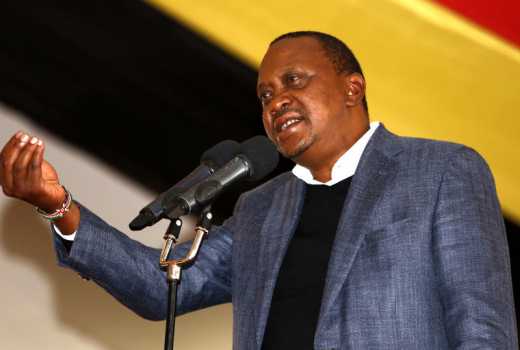×
The Standard e-Paper
Kenya’s Boldest Voice

Those close to him promised the country a ruthless President Uhuru Kenyatta, a promise Kenya’s fourth President has lived up to in the first few months of his second and final term.
He has uncharacteristically read the riot act to his ministers, marshalled Jubilee parliamentarians to do his bidding and has now firmly set his eyes, through party hawks, at the Judiciary which he and those close to him, have termed rogue on several occasions.